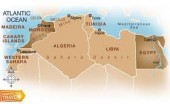Re Ian Bremmer 'Could third-party candidates upend the 2024 US election?' 3 April The current political movement in the USA…
Emerging markets & economic growth
Written by Diana Thebaud Nicholson // June 2, 2008 // Biofuels, Economy, Emerging markets/economies, Global Markets, Investment, Oil & gas // Comments Off on Emerging markets & economic growth
June 2, 2008
The World Is Upside Down
Roger Cohen, NYT Op-Ed
See the developed world as depending on the developing world, rather than the other way round. Understand that two-thirds of global economic growth last year came from emerging countries, whose economies will expand about 6.7 percent in 2008, against 1.3 percent for the United States, Japan and euro zone states.
The sharp rise in prices for energy, commodities, metals and minerals produced mainly in the developing world explains part of this shift. That has created the balance of payments surpluses fueling dollar-dripping sovereign wealth funds in the gulf and East Asia. They amuse themselves picking up a stake in BP here, a chunk of Morgan Stanley there, and why not a sliver of Total.
To place this inversion in focus, it helps to be in Brazil, where winter (so to speak) arrives with the Northern Hemisphere summer, and economic optimism, as exuberant as the vegetation, increases at the same brisk clip as U.S. foreclosures.
Huge offshore oil finds, a sugarcane ethanol boom, vast reserves of unused arable land, mineral wealth and abundant fresh water contribute to Brazilian buoyancy. But natural resources are only part of the story. As in China and India, an expanding internal market is bolstering growth. So is increasing corporate sophistication and global ambition.
The 2007 Unctad World Investment Report said developing-world direct foreign investment totaled $193 billion in 2006, compared with a 1990s annual average of $54 billion. The U.S. 2006 figure was $216.6 billion.
C.V.R.D. bought Canada’s Inco, a nickel miner, for $17 billion in 2006. It came close to acquiring the Anglo-Swiss miner Xstrata for $90 billion this year. Just last week, India’s Vedanta Resources reached a $2.6 billion deal to buy U.S. copper miner Asarco.
That deal is being challenged by Grupo Mexico, creating a Latin-American-Asian fight for a U.S. company.
A shift in economic power is under way to which the developed world has not yet adjusted. Of course the G-8 and the permanent membership of the U.N. Security Council need to be expanded to reflect this change. The 21st century can’t be handled with 20th-century institutions.



